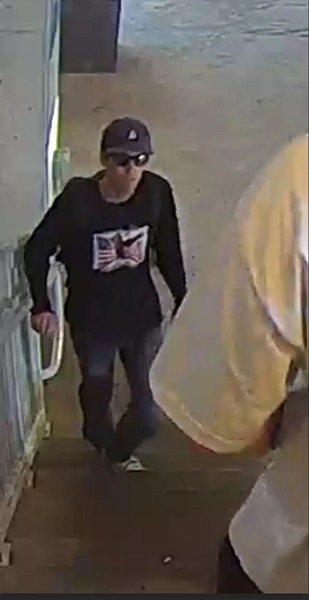Business
$1.4 billion per year: Jordan Peterson calls for end to Trudeau’s massive CBC funding
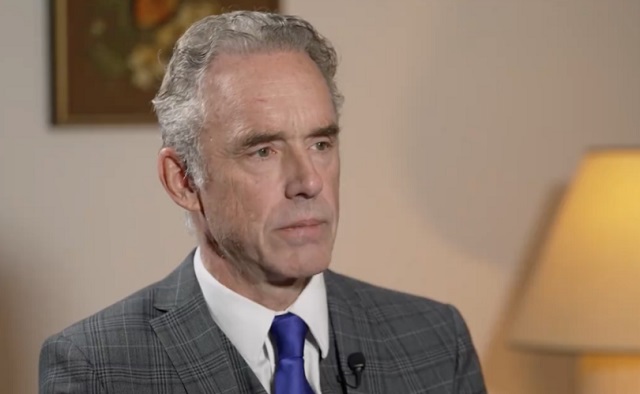
From LifeSiteNews
Dr. Jordan Peterson has pointed out that the Canadian Broadcasting Corporation (CBC), which receives over a billion dollars in taxpayer funds each year, has garnered less than 100 viewers on its last 19 videos, and therefore believes it should be defunded.
In an August 31 post on X, Peterson, a best-selling Canadian author and clinical psychologist, implied that that the CBC is massively overfunded considering its dismal engagement numbers with the public.
“1.4 billion per year: CBC subsidies from @JustinTrudeau,” Peterson wrote. “Not counting paid ads.”
1.4 billion per year: CBC @CBC subsidies from @JustinTrudeau
Not counting paid ads
The last 19 CBC video releases on @YouTube have
<100 views
EachThat's $14 000 000 per viewer
Let that sink inTake note @PierrePoilievre
Defund the CBC
— Dr Jordan B Peterson (@jordanbpeterson) August 31, 2024
“The last 19 CBC video releases on @YouTube have <100 views Each,” he continued. “That’s $14 000 000 per viewer. Let that sink in.”
Peterson further called on Conservative Party leader Pierre Poilievre to hold to his promise to “Defund the CBC,” if he is elected prime minister.
A screen shot posted on X from the same day as Peterson’s post shows CBC’s latest videos receiving between nine and just under two hundred views.
Wow! You weren't kidding, Jordan, and it doesn't get any better as you scroll down their 'Latest videos' page. This is brutal, not to mention highly humiliating for a so called 'mainstream national TV network'. pic.twitter.com/X6BtrGhXU8
— Shaun Rickard (@ShaunRickard67) August 31, 2024
Regardless of their low viewership, the CBC continues to receive massive subsidies from Prime Minister Justin Trudeau’s Liberal government. Many independent media outlets and Conservative Party politicians, including Poilievre, have accused the outlet of bias and partisanship because of this dependency on government.
Despite these concerns, the Trudeau government has only poured money into the outlet. Beginning in 2019, Parliament changed the Income Tax Act to give yearly rebates of 25 percent for each news employee in cabinet-approved media outlets earning up to $55,000 a year, to a maximum of $13,750.
The Canadian Heritage Department since admitted that the payouts are not sufficient to keep legacy media outlets running, and even recommended that the rebates be doubled to a maximum of $29,750 annually.
Last November, Trudeau again announced increased payouts for legacy media outlets, payouts which coincidence with the lead-up to the 2025 election. The subsidies are expected to cost taxpayers $129 million over the next five years.
Similarily, Trudeau’s 2024 budget outlined $42 million in increased funding for the CBC for 2024-25.
The $42 million to the CBC is in addition to massive media payouts which already make up roughly 70 percent of its operating budget, and total more than $1 billion annually.
Business
Attrition doesn’t go far enough, taxpayers need real cuts

The Canadian Taxpayers Federation is calling on Prime Minister Mark Carney to actively shrink the bureaucracy rather than relying on attrition.
“After adding about 100,000 bureaucrats in a decade, attrition doesn’t go nearly far enough,” said Franco Terrazzano, CTF Federal Director. “Carney needs to get serious about fixing the budget and making government more affordable for taxpayers.
“Carney needs to significantly shrink the bureaucracy immediately.”
Carney recently stated that any reduction of the size of the federal bureaucracy will “happen naturally through attrition.”
The federal bureaucracy cost taxpayers $71.1 billion in 2024-25, according to the Parliamentary Budget Officer. The bureaucracy cost taxpayers $40.2 billion in 2016-17. That means the cost of the federal bureaucracy increased 77 per cent since 2016.
The federal government added 99,000 bureaucrats since 2016.
Carney said he would “balance the operating budget by Budget 2028” during the election. The bureaucracy consumes about 55 per cent of the operating budget.
“Canadians pay too much for an expensive bureaucracy that underdelivers,” Terrazzano said. “Carney needs to get serious about fixing the budget, making government more affordable and shrinking the federal bureaucracy.”
Half of Canadians say federal services have gotten worse since 2016, according to a recent Leger poll commissioned by the CTF. That’s despite the cost of the federal bureaucracy growing 77 per cent. The poll also found that 54 per cent of Canadians want the government to cut the size and cost of the federal bureaucracy.
Business
Carney’s Ethics Test: Opposition MP’s To Challenge Prime Minister’s Financial Ties to China
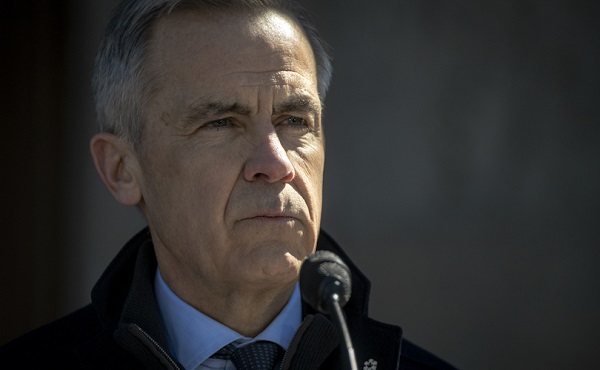
Brookfield’s 2017 purchase of Teekay Offshore tied it to a corporate family whose LNG arm partnered with China’s COSCO to ship Russian Arctic gas under the shadow of Crimea-era sanctions.
In 2017, Brookfield, the investment giant that would later launch Prime Minister Mark Carney’s global business and political reach, bought control of Teekay Offshore Partners — a shipping deal that now casts a long geopolitical shadow.
On the surface, it looked like just another Brookfield deal. But behind it lies a complicated backstory, one that deepens concerns about the global-security risks lurking beneath Carney’s sprawling portfolio of more than 550 corporate holdings.
Teekay Offshore was part of the wider Teekay corporate family, which also included Teekay LNG Partners. That LNG arm entered a major joint venture with China LNG Shipping (CLNG), a subsidiary of COSCO, the Chinese state-owned shipping giant. Together, they financed and operated six ice-breaking carriers built to transport Russian natural gas from the Arctic Yamal LNG project.

The timing could hardly have been more sensitive. The Teekay-COSCO venture was launched in 2014 — the same year Russia seized Crimea and the West hit Moscow with sanctions. Five years later, in 2019, the U.S. government sanctioned a COSCO affiliate for carrying Iranian oil, which briefly caused Teekay’s joint venture with COSCO’s China LNG Shipping on the Arctic Yamal project to be treated as a “Blocked Person” under American rules.
The sanction was lifted after COSCO restructured its ownership.
Brookfield never owned Teekay LNG; its stake was in the Teekay Offshore arm, a separate division of the Teekay corporate family. But the two companies shared the Teekay brand, and as long as Brookfield remained tied to that structure, it was positioned uncomfortably close to a Sino-Russian natural gas venture that Washington had already flagged as risky.
COSCO – or China Ocean Shipping Company, a state-owned maritime giant – is a story in itself.
It has repeatedly faced U.S. scrutiny over its potential role in illicit and sensitive activities. In 1996, U.S. Customs agents seized 2,000 disassembled Chinese assault rifles hidden in containers on a COSCO ship at the Port of Oakland, allegedly bound for Mexican drug cartels. While official blame fell on Poly Technologies Inc. — a Chinese arms exporter — and the smuggling network behind the shipment, the incident heightened concerns about COSCO’s links to Beijing’s military and underground proliferation networks.
Other troubling episodes include a 1993 incident involving a COSCO vessel suspected of carrying chemical-weapons precursors to Iran, a 2015 seizure of explosives on a COSCO ship in Colombia headed for Cuba, and the 2019 U.S. sanctions on COSCO subsidiaries for violating Iran oil embargoes.
The Bureau has also reported on Canadian concerns. In December 1999, former Crown prosecutor Scott Newark wrote to an Ottawa intelligence review panel, noting that Canadian intelligence officials had long scrutinized COSCO’s activities at Vancouver’s port, citing alleged ties to both Chinese Triads and the People’s Liberation Army.
As Carney steps back into Parliament today, he is likely to face scathing questions from the Opposition not only about his Brookfield holdings and potential conflicts tied to deals like Teekay, but also over his government’s billion-dollar loan to BC Ferries for vessels built at a Chinese state-owned shipyard linked to Beijing’s civil-military fusion strategy.
This is where Carney himself enters the Brookfield story. After stepping down from the Bank of England in 2020, he joined Brookfield as Vice Chair and Head of ESG and Impact Investing. He later became Chair of Brookfield Asset Management. That means while Brookfield was still closely tied to Teekay Offshore, Carney was one of the most senior figures shaping Brookfield’s strategy — and holding significant personal stakes in its success.
Today, Brookfield has no exposure through Teekay. Teekay Offshore has since been renamed Altera Infrastructure and separated from its parent. In other words: while Brookfield has avoided direct legal risk, the reputational and geopolitical iceberg remains just beneath the waterline. Fresh controversy now looms in the case of the BC Ferries deal, in which the federal government, through the Canada Infrastructure Bank, which is overseen by Housing Minister and former Vancouver mayor Gregor Robertson, has provided a $1 billion low-interest loan to help BC Ferries purchase four hybrid vessels built by CMI Weihai, a Chinese state-owned shipyard. Opposition MPs say the loan contradicts Carney’s “Buy Canada” rhetoric and risks strengthening a PRC enterprise under civil-military fusion policy, at a moment when Beijing is openly threatening to invade Taiwan — with vessels constructed by state-owned shipbuilders such as CMI Weihai potentially part of that buildup.
As The Bureau has reported, an Ottawa democracy watchdog has already warned that Prime Minister Carney’s sprawling private investments — including substantial holdings in Brookfield as well as shares in more than 550 other companies — create a disabling conflict of interest that cannot be solved by his so-called “ethics screen,” ultimately undermining Ottawa’s credibility and weakening Carney’s capacity to confront hostile regimes, including China.
“PM Carney’s so-called ‘blind’ trust isn’t blind at all,” Democracy Watch stated this summer. “He knows exactly what he put in, he chose his own trustee, can instruct them not to sell, and can receive updates at any time. On top of that, he owns stock options in Brookfield that he can’t sell for years, guaranteeing he stays tethered to these corporate interests.”
These warnings echo The Bureau’s March 2025 pre-election investigation, which outlined in granular detail Carney’s deep entanglements with Brookfield and China. The Bureau revealed that Brookfield, the $900 billion investment giant Carney joined in 2020, held over $3 billion in politically sensitive assets connected to Chinese state-linked real estate and energy conglomerates, as well as a significant offshore banking footprint. One of its headline deals — a $750 million stake in a Shanghai commercial property project dating back to 2013 — was tied to a Hong Kong tycoon with official links to the Chinese People’s Political Consultative Conference, a central “united front” body identified by the CIA as a tool of Beijing’s overseas influence operations.
-

 espionage2 days ago
espionage2 days agoInside Xi’s Fifth Column: How Beijing Uses Gangsters to Wage Political Warfare in Taiwan — and the West
-

 Censorship Industrial Complex2 days ago
Censorship Industrial Complex2 days agoDecision expected soon in case that challenges Alberta’s “safe spaces” law
-

 Energy2 days ago
Energy2 days agoThe IEA’s Peak Oil Fever Dream Looks To Be In Full Collapse
-

 Crime2 days ago
Crime2 days agoTransgender Roomate of Alleged Charlie Kirk Assassin Cooperating with Investigation
-
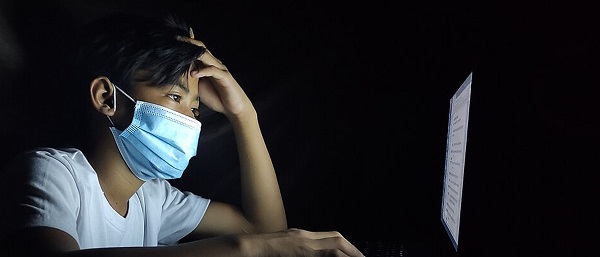
 COVID-192 days ago
COVID-192 days agoWhy FDA Was Right To Say No To COVID-19 Vaccines For Healthy Kids
-
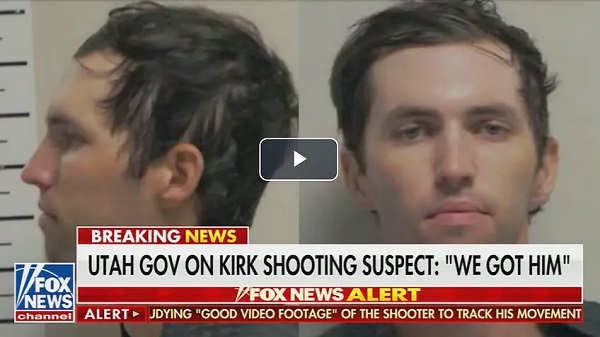
 Crime24 hours ago
Crime24 hours agoDown the Charlie Kirk Murder Rabbit Hole
-

 Business13 hours ago
Business13 hours agoCarney Admits Deficit Will Top $61.9 Billion, Unveils New Housing Bureaucracy
-

 Business21 hours ago
Business21 hours agoIt’s time to finally free the beer


